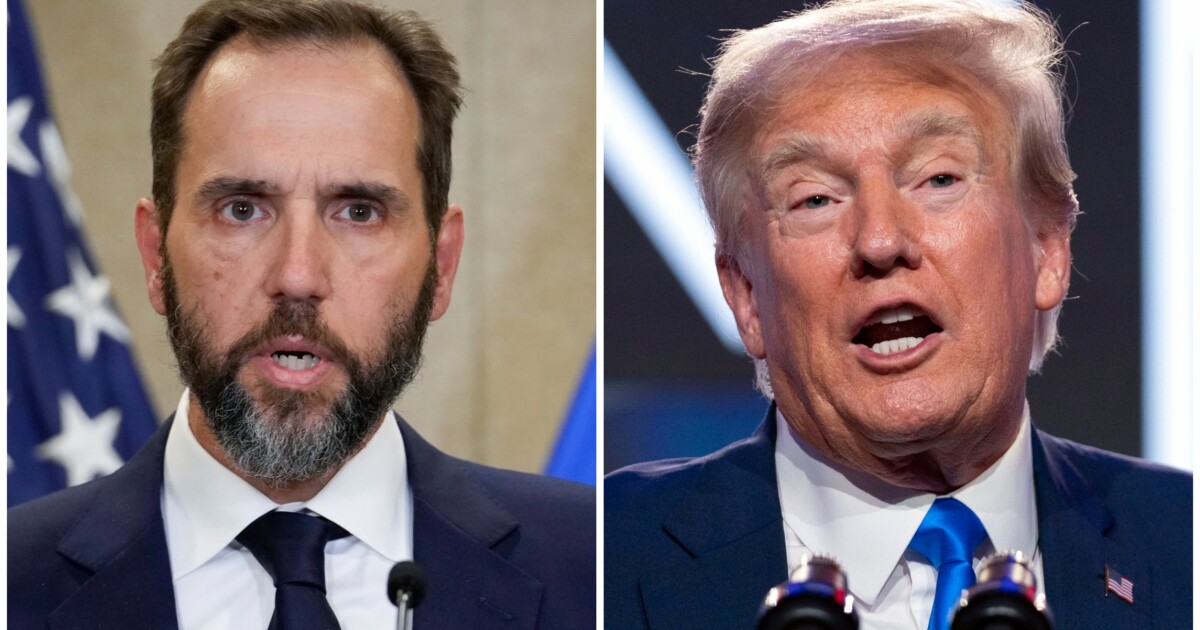

Department of Justice Special Counsel Jack Smith filed an argument Saturday disputing former President Donald Trump’s claim that he has presidential immunity from prosecution in the 2020 election interference case.
Last weekend, Trump’s legal team asked the United States Court of Appeals for the District of Columbia Circuit to throw out the case, arguing that he could not be prosecuted if he was not impeached by the House and convicted by the Senate for the same conduct.
WHY 14TH AMENDMENT EFFORT TO OUST TRUMP COULD BACKFIRE ON DEMOCRATS
Smith rejected that idea in his response, arguing that granting Trump immunity in the case would set a dangerous precedent.
“The defendant asserts (Br.1) that this prosecution ‘threatens … to shatter the very bedrock of our Republic,’” Smith wrote in the filing. “To the contrary: it is the defendant’s claim that he cannot be held to answer for the charges that he engaged in an unprecedented effort to retain power through criminal means, despite having lost the election, that threatens the democratic and constitutional foundation of our Republic.”
The special counsel asked the court, which is scheduled to hear oral arguments regarding the immunity dispute on Jan. 9, 2024, to “affirm and issue the mandate expeditiously to further the public’s—and the defendant’s—compelling interest in a prompt resolution of this case.”
Smith called the implications of Trump’s broad immunity theory sobering, laying out a number of hypothetical examples in which a president could be protected from criminal activity.
“In his view, a court should treat a President’s criminal conduct as immune from prosecution as long as it takes the form of correspondence with a state official about a matter in which there is a federal interest, a meeting with a member of the Executive Branch, or a statement on a matter of public concern,” Smith wrote.
“That approach would grant immunity from criminal prosecution to a President who accepts a bribe in exchange for directing a lucrative government contract to the payer; a President who instructs the FBI Director to plant incriminating evidence on a political enemy; a President who orders the National Guard to murder his most prominent critics; or a President who sells nuclear secrets to a foreign adversary, because in each of these scenarios, the President could assert that he was simply executing the laws; or communicating with the Department of Justice; or discharging his powers as Commander-in-Chief; or engaging in foreign diplomacy.”
CLICK HERE TO READ MORE FROM THE WASHINGTON EXAMINER
Trump faces four charges in the third of his four criminal indictments: conspiracy to defraud the U.S., obstructing an official proceeding, conspiracy to obstruct an official proceeding, and conspiracy against rights. He has pleaded not guilty to all of them.
The trial is scheduled to begin March 4, 2024.




